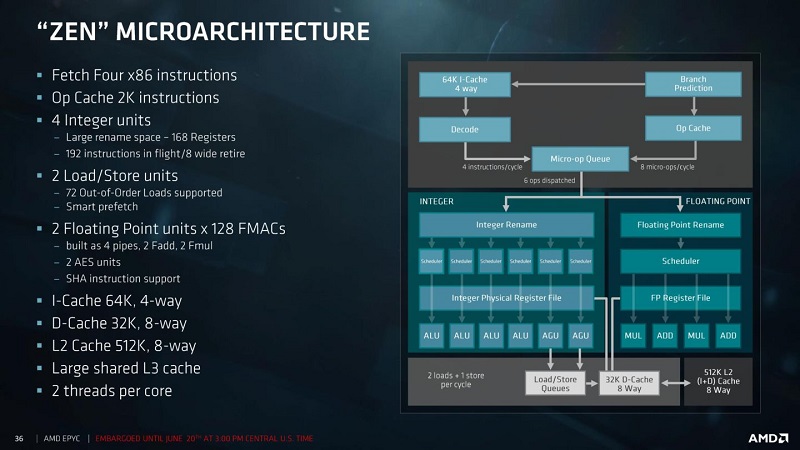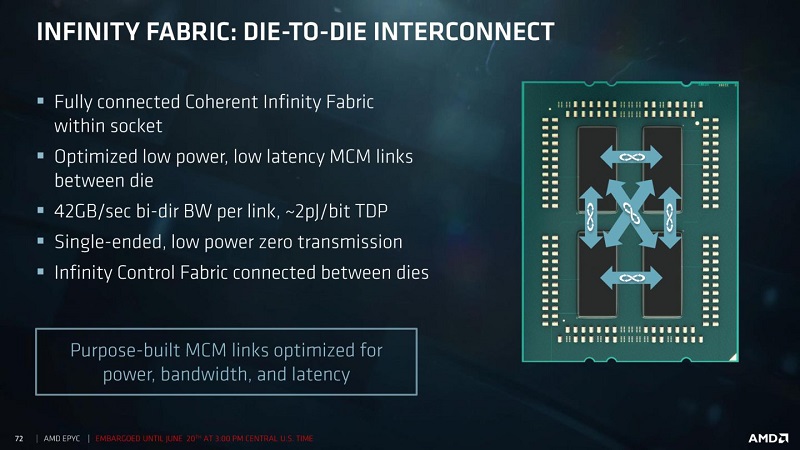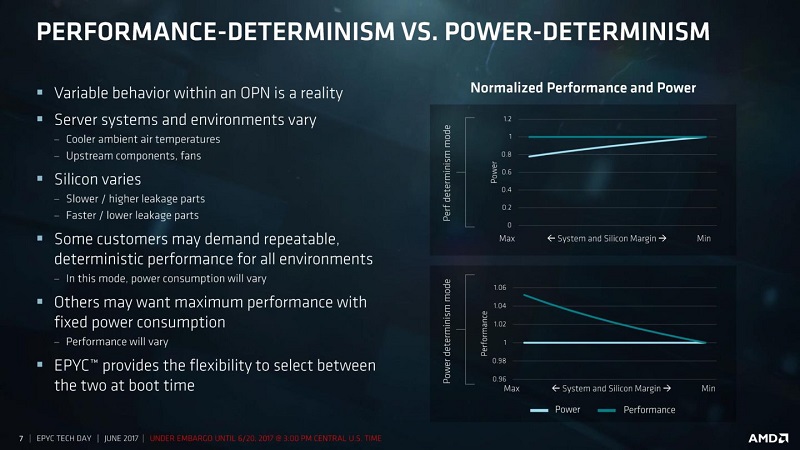AMD Releases EPYC Enterprise Processors
Samuel Wan / 7 years ago

Earlier this year, AMD revealed their new server offerings, codenamed Naples. Based on the new Zen architecture, Naples is AMD’s answer to Intel’s Xeon lineup. With yesterday’s announcement, AMD has officially unveiled Naples as Epyc, their new enterprise server offering. This is the first generation of Zen based server processors with more to come in the future.

First off, Epyc is built using the same fundamental 4 core Zen CCX unit and 8 core MCM module. Ryzen features a single module, Threadripper offers 2 modules and Epyc comes with up to 4 modules. In addition to the host of usual Zen features like SMT, Epy features up to 128 PCIe lanes and eight DDR4 memory channels powered by 2 IMCs. Furthermore, if one Epyc isn’t enough, you can even place them in a double socket configuration as well.

Infinity Fabric Makes AMD Epyc
The key to AMD’s flexibility and success with Zen is their new Infinity Fabric. This flexible interconnect is derived from their older HyperTransport technology. Infinity Fabric is used to connect each CCX in each MCM to each other and tie multiple MCM together on one package. Each MCM has a direct link to each of the other MCMs. AMD is also using Infinity Fabric to connect the two sockets for Epyc together as well. With 42GB/s of bandwidth per link, that is as much bandwidth as dual channel 2,667MHz DDR4. The interconnect between sockets feature 4 links running at 38GB/s.

With Infinity Fabric, AMD is taking a page out of Intel’s book. During the race between Core and K8/K10, AMD was the first to market with real dual core and quad core processors. However, Intel was able to beat AMD to market with dual core and quad core offerings. Intel simply slapped two cores together and had them communicate over a slower bus. AMD is doing something similar now with Infinity Fabric, offering more cores pieced together from smaller modules that scale big rather than custom designs for each core count. While AMD’s solution is more elegant and scalable than the FSB, the concept is familiar.

Last of all, Epyc offers several additional enterprise twists to Zen. At boot, the processors can be configured for either consistent performance or consistent power mode. Consistent performance will draw more power to keep the boost states going. Consistent power will trim clock speed to stay within a power envelope. There should be plenty of TDP to go around for Epyc however. The 8 core 16 thread 7251 comes in at 120W TDP while the 32 core 64 thread 7601 features a 180W TDP. Just like with Ryzen, AMD is aiming to offer more cores and features compared to Intel at the same price point to offset their single thread deficiency. Overall, it looks like AMD has some strong offerings to challenge Intel’s Xeon lineup.



















